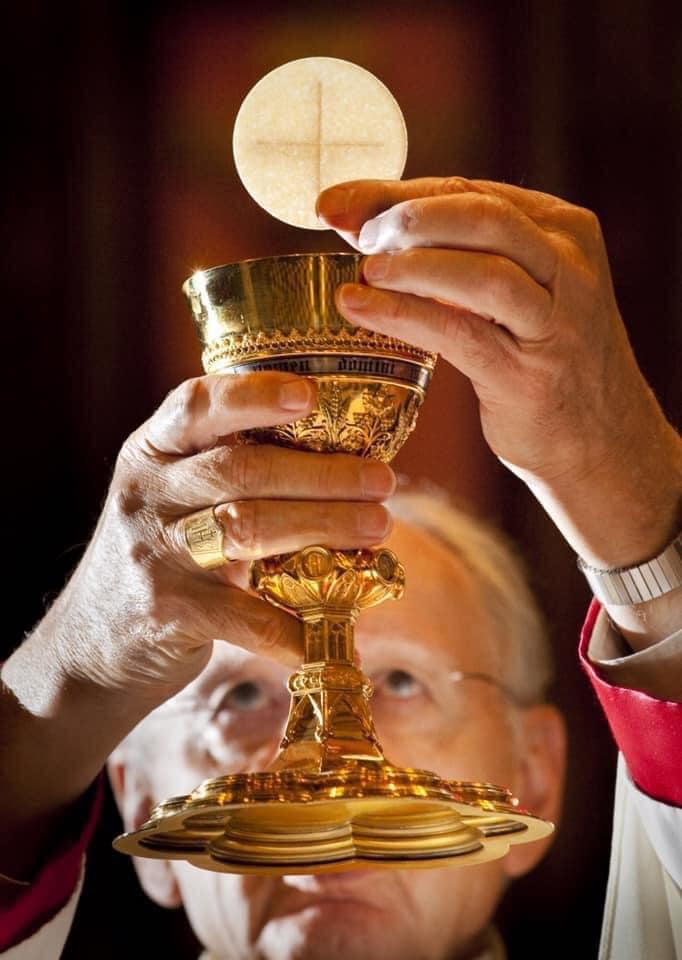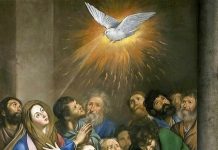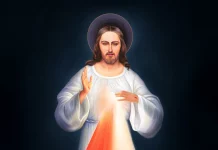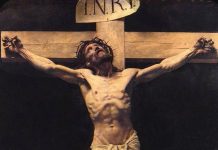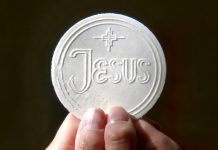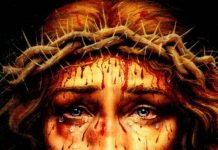The whole vision has become to you like the words of a book that is sealed, which men deliver to one who is literate, saying, “Read this, please.” And he says, “I cannot, for it is sealed.” Then the book is delivered to one who is illiterate, saying, “Read this, please.” And he says, “I am not literate.” (Isa 29:11-12).
It is a mystery which both the learned and the illiterate fail to understand. Those who consider themselves wise fail to grasp its meaning. Those who are ignorant know nothing of it. It is the stone that the builders rejected without knowing its value. It is the delicious bread that Jesus Christ has kept ready for those people who are invited from the east, the west, the north and the south for the Lord’s table in the kingdom of God. To those who rebelliously turn their face away from his invitation, Jesus has said this also. “None of those who were invited will taste my dinner” (Lk 14:24).
Holy Eucharist! Volumes are not enough to explain it, because there is nothing like Holy Eucharist in the whole history of man. It is unique to the core. You cannot even draw parallels to what Jesus accomplished in Calvary. It was the miracle of a man giving away his body and blood as ransom for the whole of humanity! How is it possible? A disciple, who straight from the Lord’s table, left for the darkness outside, failed to understand it. Those Jews who were wondering about the sheer possibility of a man giving away his body and blood to others as food could not hide their amazement. “How can this man give us his flesh to eat?” They did not get the answer they expected. In fact the reply of Jesus compounded their doubts. They did not understand who Jesus Christ was and what the value of Eucharist was. Had they known it ‘they would not have crucified the king of glory’.
Israelites who were fed with manna in the desert were not happy with it after a while. They felt it was not sufficient to satisfy their taste buds. True, familiarity breeds contempt. They could not grasp the value of this bread that God sent them from heaven. Times have changed, but human nature doesn’t. Even today our complaint is the same. We fail to understand the value of the heavenly bread that we call Holy Eucharist because we get it every day without any interruption. We get it free. We get it without any effort on our part. Familiarity with something so precious has led us to disregard its greatness!
What was the reason for Israelites not understanding the true value of manna? We get the answer to this question from the gospel of John. ‘Then Jesus said to them, “Very truly, I tell you, it was not Moses who gave you the bread from heaven, but it is my Father who gives you the true bread from heaven” (Jn 6:32). As far as Israelites were concerned, the sudden appearance of manna before their eyes was just another miracle performed by Moses. The Jews proved that they are worthy to be called the descendants of those who did not believe in Moses by asking a sign from Jesus. ‘ What sign are you going to give us then, so that we may see it and believe you? What work are you performing?’ (Jn 6:30).
If they ever realized that manna was a precious gift that God the Father sent to them from heaven, they would not have considered it as a worthless bread. They could not see what was holy in a holy way. It was natural for such a nation that all their memories about this heavenly food gradually faded into oblivion. Such a nation never deserves the priceless gift of the Ark of the Covenant always staying with them. After all, the Ark contained Aaron’s rod that budded, and the tablets of the covenant, and of course, the golden urn holding the manna. But interestingly, the Philistines realized its importance even though the chosen people failed in it. We read that the Philistines returned the Ark accompanied with guilt offerings, to Israelites.
We are nowhere near the realization that Holy Eucharist is Jesus’ own body and blood served to us in the form of bread and wine. We are yet to grasp the meaning of our Lord’s promise; ‘This is the bread that comes down from heaven, so that one may eat of it and not die’ (Jn 6:50). The very thought that ‘we should not work for the food that perishes, but for the food that endures for eternal life, which the Son of Man will give us’ (Jn 6:27) has become alien to us. And the philosophy of the person who told us, ‘I am the bread of life’ (Jn 6:25) is being ridiculed as something impractical in this modern world.
Yet we do not stop complaining about what we expect but do not get from Holy Eucharist!
What happened to us? We should know why we are not giving the respect that Holy Eucharist deserves. We should know what will happen if we despise ‘the scepter of God’s Son’ (Ezek.21:10). Holy Mass is not just another program. Holy Eucharist is not just another loaf of bread. It is the subtle way Jesus Christ selected to be with us till the end of times. It is his unshakable promise that he will be with us until the day the sun stops rising and setting above us, until the consummation of everything. For Jesus, the Son of Man and Son of God, opted to humble himself to become a wheat bread to give us the real feeling of a living God living with us. ‘See the tabernacle of God is among mortals’ (Rev 21:3).
This is no ordinary bread. This heavenly bread is reserved as the minimum qualification for us to enter the portals of eternal life. ‘Very truly I tell you, unless you eat the flesh of the Son of Man and drink his blood, you have no life in you’ (Jn 6:53). This medicine for eternity is administered to us as viaticum at the time of our final journey towards heaven. Christ to abide in us and we in Christ, there is no other way except receiving Holy Eucharist. ‘Those who eat my flesh and drink my blood abide in me, and I in them’ (Jn 6:56). He has also told us that those who eat this bread will live because of him. ‘ Whoever eats me will live because of me’ (Jn 6:57). In the letter to the Hebrews we read; ‘And it is by God’s will that we have been sanctified through the offering of the body of Jesus Christ once for all’ ( Heb. 10:10).
As Christians, we confess our faith in eternal life which is essentially a passover from death to life. We repeat it in the Creed, in our daily prayers and also during Holy Mass. Holy Eucharist is the ultimate sign of this Passover from death to life. Here a mere wheat bread is transformed into the living body of Jesus Christ. And ordinary wine becomes his blood. If it is possible for God to create everything from nothing, do you think that transforming inanimate things to living objects is not possible for Him? Then why should we doubt God’s power to raise the dead? If we believe that God loved us to the extent of sending His only begotten Son to us, why can’t we believe that He will express this love towards us by raising us from death also?
It follows that belief in the Holy Eucharist is in essence belief in life after death. After all we are receiving the body and blood of Jesus Christ who though crucified rose again. We are sharing the hope in eternal life by partaking in the sacrifice of Jesus in Calvary. Catholic Church teaches us that every Holy Mass celebrated in this world is a re-enactment of the sacrifice of Jesus that happened two thousand years ago. ‘Because it is the memorial of Christ’s Passover, the Eucharist is also a sacrifice. The sacrificial character of the Eucharist is manifested in the very words of institution: “This is my body which is given for you” and “This cup which is poured out for you is the New Covenant in my blood.” In the Eucharist Christ gives us the very body which he gave up for us on the cross, the very blood which he “poured out for many for the forgiveness of sins” (CCC 1365).
The Church underlines the fact that the sacrifice in the cross and its enactment in the altar are not two distinct incidents, but one and same sacrifice, by affirming it in its catechism.
‘The sacrifice of Christ and the sacrifice of the Eucharist are one single sacrifice: “The victim is one and the same: the same now offers through the ministry of priests, who then offered himself on the cross; only the manner of offering is different.” “And since in this divine sacrifice which is celebrated in the Mass, the same Christ who offered himself once in a bloody manner on the altar of the cross is contained and is offered in an unbloody manner. . . this sacrifice is truly propitiatory’ ( CCC 1367).
If the sacrifice is the same, its results also will be the same. If the sacrifice of Jesus Christ in Calvary brought us salvation and eternal life, every Holy Mass we celebrate with due preparation will also guide us to the eternal kingdom where we will reign with our Lord.
While teaching about the ways in which the faithful should get the Christ experience, during the period after his ascension, the Church mentions the Word, prayer fellowships, prayers, and sacraments but concludes her teaching by focussing on the Holy Eucharist. ‘Christ Jesus, who died, yes, who was raised from the dead, who is at the right hand of God, who indeed intercedes for us,” is present in many ways to his Church: in his word, in his Church’s prayer, “where two or three are gathered in my name,” in the poor, the sick, and the imprisoned, in the sacraments of which he is the author, in the sacrifice of the Mass, and in the person of the minister. But “he is present . . . most especially in the Eucharistic species’ (CCC 1373).
What helps us is persevering through the hard times of this life is the hope in the bliss and joy that we are going to enjoy in the world to come. Holy Eucharist is the most visible and present symbol of this heavenly joy and the Church summarizes her teachings about it in the following words: ‘ There is no surer pledge or dearer sign of this great hope in the new heavens and new earth “in which righteousness dwells,” than the Eucharist. Every time this mystery is celebrated, “the work of our redemption is carried on” and we “break the one bread that provides the medicine of immortality, the antidote for death, and the food that makes us live forever in Jesus Chris.’ ( CCC 1405.
Yet we doubt the efficacy of Holy Eucharist. As we said earlier, it is a sealed book that is not open to the learned as well as the illiterate. It is not possible to understand the value of the Holy Eucharist unless the seal is broken. And we know that breaking the seal of divine mysteries is the work of the Holy Spirit.
Those who are blessed to get the grace to truly know the greatest miracle in this world that we call Holy Eucharist, reaps its benefits. For those who do not get this grace, Holy Eucharist is ‘a stone that makes them stumble, and a rock that makes them fail’ (1 Pet 2:8). They fail to understand one thing; ‘Everyone who falls on that stone will be broken to pieces; and it will crush anyone on whom it falls’ (Lk 20:18).
The teaching about this heavenly bread had caused great confusion even during the times of Jesus. But what we should remember is that in spite of a large-scale desertion from the ranks of his disciples, Jesus never tried to convince them, nor did he move an inch from his teaching. Instead what he did was asking those disciples who remained with him; “Do you also wish to go away?”(Jn 6:67). We should remember that this question was addressed to a handful of persons who were witnessing a rapid erosion in the number of disciples solely because of a teaching about Eucharist!
Even today, Jesus asks the same question to those whom the Eucharist makes stumble. “Do you also wish to go away?” Those who do not believe that the body and blood of Christ will lead them to eternal life can go to the darkness outside. Let others say like Peter; ‘Lord, to whom can we go? You have the words of eternal life. We have come to believe and know that you are the Holy One of God’ (Jn 6:68).
Let us pray to the Holy Spirit to impart us the true wisdom to understand the mystery of the sealed book called Holy Eucharist. It is the Spirit who completes what was left by Jesus. In fact, there is nothing new to be learnt about the Eucharist, because Jesus had already told us everything. What we need is the humility of Peter to know it. Sadly, we see that so many Catholics skip the Holy Mass nowadays. Certain others do attend the Holy Mass, but excuse themselves from receiving the Holy Eucharist. They do it often for silly reasons. We should remember that if we refuse to receive the body and blood of Jesus Christ, even when they are offered to us, the responsibility is ours. We are going to be the ultimate losers and the value of what we lose will be clearer in the coming days, when the devil will go to any extent to make sure that the ‘regular burnt offering is taken away’( Dan 12:11).
Let us pray: O Jesus Christ, who waits for us with the bread of eternal life and the cup of salvation, grant us the grace to understand the true value of Holy Eucharist. May the faith that your body and blood bring us forgiveness of sins and eternal life be deeply engraved in our hearts.


